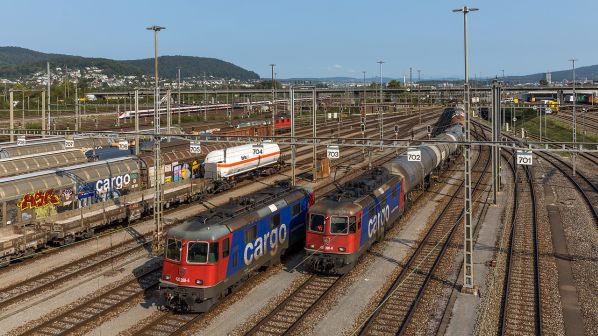Swiss Combi comprises Planzer Holding (40%), Camion Transport (40%), Bertschi (10%), and Galliker Holding (10%). SBB will retain the remaining 65% stake in SBB Cargo.
SBB says the members of Swiss Combi aim to promote a modal shift from road to rail, increasing utilisation of the wagonload network and developing intermodal solutions. The goal is to improve the competitiveness of rail in the logistics chain and ensure the different modes are used to their strengths - rail for long distance freight movements and road for distribution to the end customer.
SBB says the partners’ combined expertise in the fields of logistics and warehousing will help to provide better services for customers, for example in densely-populated areas or through new door-to-door logistics solutions.
The terms of the transaction of have not been disclosed and the acquisition is subject to approval by Swiss competition authorities.
Prior to the completion of the transaction SBB Cargo International will be divested from SBB Cargo, becoming a direct subsidiary of SBB.
Plans to seek a strategic partner were unveiled by the Swiss Federal Council in December 2018 as part of its 2019-2022 strategic objectives for SBB.
Under the new structure, the SBB Cargo board will comprise seven members including two representatives of SBB, which has the option of appointing up to four members. SBB CEO Mr Andreas Mayer will serve as chairman and Mr Christoph Hammer will be be CFO until the company’s annual general meeting in the second quarter of 2020.

Swiss Combi will appoint two members to the SBB Cargo Board, Mr Nils Planzer and Mr Josef Jäger. Mr Eric Grob, a former partner at consultancy McKinsey, will join as an independent board member before the end of the year.
SBB carries more than a quarter of overall freight volumes in Switzerland, with just under 16% attributable to SBB Cargo. The company transports around 29.9 million net tonnes of freight annually.
SBB Cargo was established in 1999 and generated a profit for the first time in 2013. Government debt was reduced from SFr 25m to zero in 2019 and the company generated turnover of SFr 742m in 2018.
The operator’s fleet comprises 313 main line locomotives, 76 shunting locomotives and 5324 wagons.
Headquartered in Olten, SBB Cargo employed 2275 staff at the end of last year.

